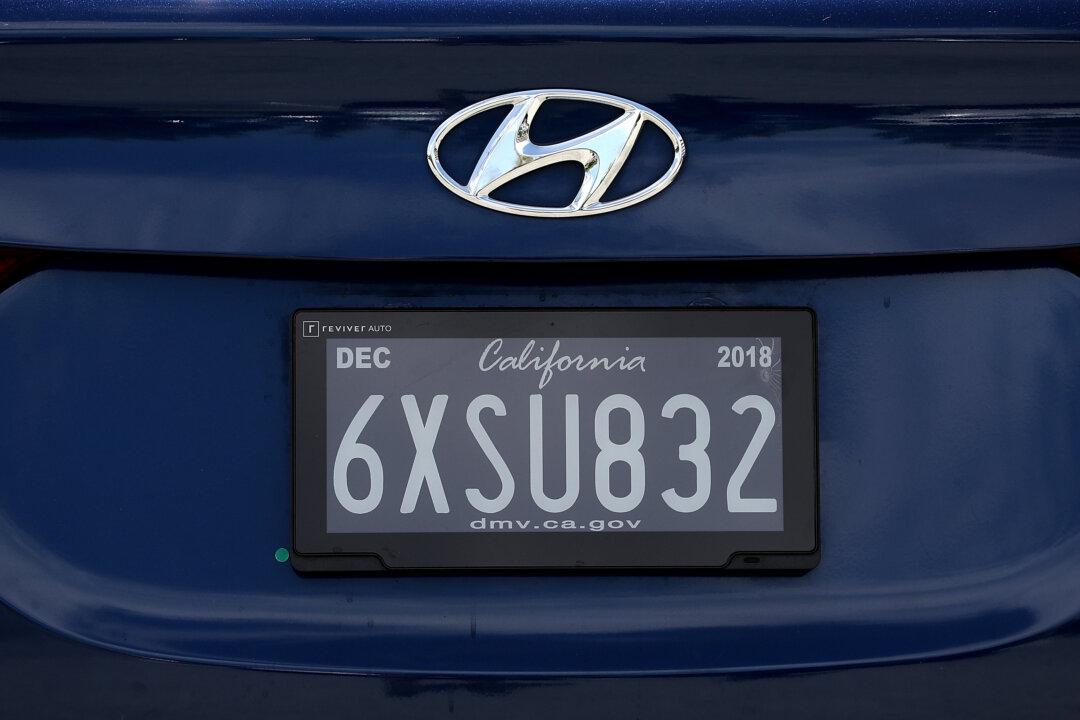A federal judge ruled that the California Department of Motor Vehicles’ ban on personalized license plates it deems contrary “to good taste and decency” violates the free speech protections of the First Amendment to the U.S. Constitution.
“This is a great day for our clients and the 250,000 Californians that seek to express their messages on personalized license plates each year,” said Wen Fa, an attorney with the Pacific Legal Foundation (PLF), a public-interest law firm based in Sacramento that represents the plaintiffs.





